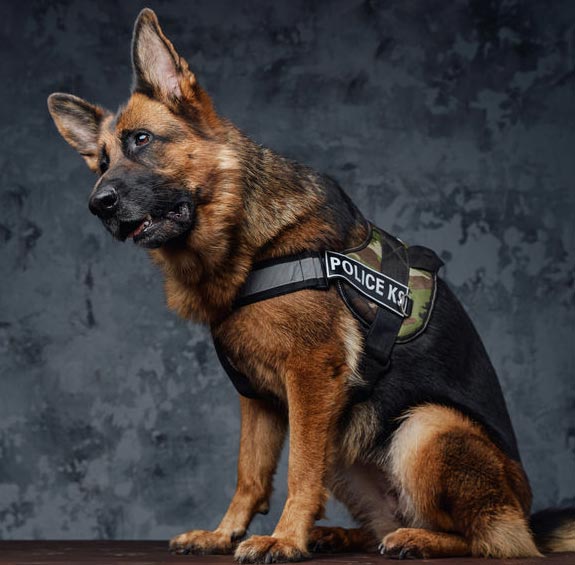Discover interactive and entertaining classes at Ohana K9 Academy today.
Essential Pet Dog Training Methods for a Lifetime of Etiquette
Effective pet dog training is foundational to fostering a well-behaved companion that improves our lives. Understanding canine actions and using socialization strategies can prevent prospective issues before they occur.
Understanding Dog Actions

Moreover, recognizing the innate reactions and drives of a dog-- such as victim drive, social communications, and territorial behaviors-- enables trainers to expect and handle specific habits. As an example, a dog with a solid target drive might require different strategies than one that is extra socially inclined.
Additionally, early socialization and exposure to various settings considerably influence a canine's actions and character. Favorable experiences during essential developing periods can bring about well-adjusted grown-up dogs, whereas adverse experiences may cause anxiousness or hostility.
Favorable Reinforcement Approaches
Amongst the numerous pet dog training methods, positive reinforcement methods attract attention for their efficiency and capacity to enhance the bond in between pet and trainer (Ohana K9 Academy). This approach highlights satisfying preferred behaviors instead of penalizing undesirable ones, promoting an extra cooperative and relying on relationship
Favorable support can take many forms, consisting of treats, praise, playthings, or playtime. The secret is to provide instant incentives when the dog exhibits the wanted habits, permitting them to make the connection in between the activity and the positive end result. As an example, if a dog rests on command, offering a treat right away enhances that actions, making it more probable to be duplicated.
Uniformity is important in positive reinforcement training. Trainers ought to utilize the very same cues and benefits to prevent puzzling the dog. Furthermore, varying the incentives can keep the pet's rate of interest and motivation, transitioning from regular treats to occasional appreciation or play as the pet masters the behavior.

Standard Command Training
Building on the structure developed through favorable support techniques, basic command training works as a vital action in establishing a well-mannered dog. This training generally includes crucial commands such as "rest," "stay," "come," and "down - Ohana K9 Academy." Each command plays a crucial function in fostering efficient communication between the canine and its owner, boosting the overall bond
To initiate basic command training, pick a quiet atmosphere complimentary from diversions. Begin with short, focused sessions lasting no greater than 5 to 10 minutes to maintain your dog's interest. my link Use high-value deals with as incentives, making certain the pet dog connects appropriate behavior with favorable end results. When showing a command, utilize a clear, regular spoken hint accompanied by hand signals to strengthen understanding.
Perseverance is vital; pet dogs might need many reps to comprehend commands completely. Normal practice strengthens learned commands, solidifying them in your pet's actions repertoire.
Socializing Techniques
In the realm of canine training, socializing methods are crucial for cultivating a well-adjusted and confident canine buddy. Reliable socializing entails subjecting your pet dog to a range of settings, individuals, and various other animals in a regulated and favorable fashion. The main objective is to help your dog develop a convenience level with varied experiences, which can considerably reduce anxiety and stress and anxiety in unknown circumstances.
Begin socializing during the important developing home window of 3 to 14 weeks, when young puppies are most receptive to brand-new experiences. Introduce your canine to different settings, such as parks, urban areas, and homes with other pet dogs. Make certain these encounters are positive by utilizing deals with and appreciation to enhance etiquette.
Team training courses are an excellent means to subject your dog to various other canines and individuals in an organized atmosphere. This permits for monitored communications, aiding your dog learn ideal social cues. Routine outings and playdates with well-mannered canines can additionally enhance social skills.
Dealing With Behavioral Problems
Dealing with behavioral problems in pet dogs is an important facet of training that needs an organized method and understanding of canine habits. Common issues such as barking, eating, aggressiveness, and stress and anxiety can originate from different aspects, consisting of lack of socializing, inadequate exercise, and even clinical issues.

Additionally, developing an organized routine that includes regular exercise and mental excitement can dramatically reduce behavioral issues. For example, interactive playthings can maintain a canine engaged and reduce harmful tendencies. In situations of severe hostility or click reference anxiety, talking to a professional dog trainer or a veterinary behaviorist might be needed.
Verdict
In conclusion, effective dog training strategies, consisting of positive reinforcement, standard command training, and socializing, are essential for cultivating excellent behavior throughout a dog's life. Attending to behavioral concerns with an organized approach not only enhances obedience yet additionally strengthens the bond in between canines and their proprietors.